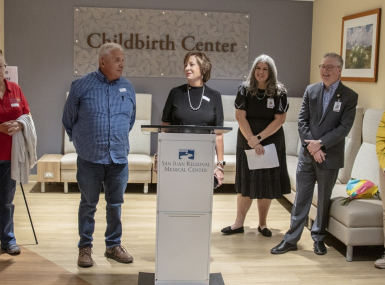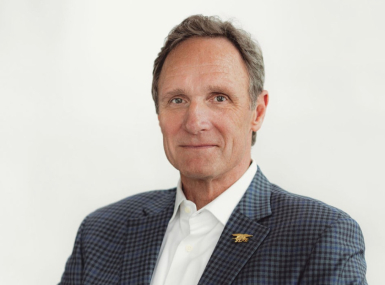Gen. Stanley McChrystal went hands-off to make gains in Iraq
In Iraq, Stanley McChrystal found the key successful leadership was letting others use their judgment
Gen. Stanley McChrystal achieved a lot while in command of U.S. Forces in Iraq and Afghanistan, but he still dwelled on how being slow to adopt new ways of thinking and leading kept him from doing more early on.
He saw al Qaeda in Iraq take heavy losses in leadership but keep on working, despite successful operations by American counterinsurgency forces, which had been in operation since 1980.
But it was an old way of thinking that had lulled U.S. Forces into overconfidence.
“When (the original) al Qaeda was formed in 1988, there was no information technology, but in 2003 every Iraqi and Afghan had a cell phone and access to a computer and used it in their daily lives and reflexively used them as terrorists,” he said, comparing an established company to a nimble startup.
U.S. Forces changed the way they operated to match. Keeping backbone functions like finance and human resources stable, communication and information sharing among combat forces changed dramatically, with more lateral communication among many more sources and more delegation.
Rather than bringing intelligence about targets to McChrystal after he had gone to sleep and deliberating over the courses of action, McChrystal instructed his forces to use their best judgment in authorizing airstrikes so they didn’t miss their opportunities. To feel empowered to deviate from a plan if there was a better way to achieve success.
“You’ll never be fast enough if you don’t push decision making closer to the point of action,” he said. “You’ll never be precise enough because centralized doesn’t work anymore.”
For an organization, like the Armed Forces, that was built on routine and stability, delegation was a risk, but leveraging the trust between competent officers made it successful in what he called eyes-on-hands-off leadership.
“None of us had a road map before we did it,” McChrystal said. “We did it because we had to in combat.”
That risk went hand-in-hand with accountability. The natural tendency to try to mitigate risk is to write policy after policy, he said.
“The experience changed his vision of leadership.
“When I started my career, I thought this is what a leader looked like: a general walking ashore with flunkies behind him taking down every instruction,” McChrystal said. “The reality is that what we do as leaders may be different from what we thought we’d do.
“In reality what we actually do is we make the team work. We grow leaders, we enable leaders. I started thinking of leaders like gardeners. What’s a gardener do? I don’t think a gardener grows anything. Only plants can do that, but gardeners are not unimportant. They prepare the ground, they plant, they water they weed, they feed, the protect, they harvest.
“If a gardener does it well, he creates an environment in which plants can do that which only plants can do. The gardener isn’t the choke point. The most effective leaders are a lot like gardeners.”
Attachments
Related News

Now I know I can adapt my communication style
San Juan County, N.M. Commissioner Terri Fortner spent her career working with people one-on-one, but she overcame hangups about online communication when the pandemic forced her onto video calls when she first took office.

County service meets a veteran’s need for purpose in Spotsylvania County, Virginia
After Drew Mullins transitioned from a high-performance lifestyle in the military, he found the environment and purpose he sought when he took office in his county.
Now I know that solid waste is complicated
Custer County, Idaho Commissioner Will Naillon says solid waste removal is "one of the things that people often take for granted until it’s their job to make sure it happens... that’s the story of being a county commissioner."
